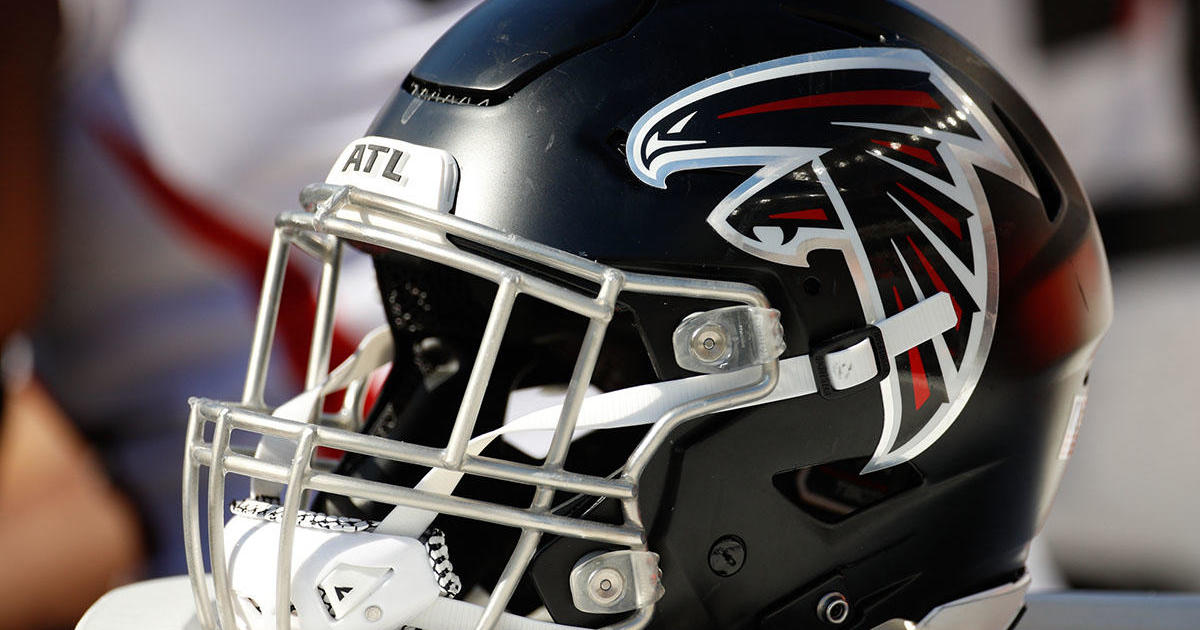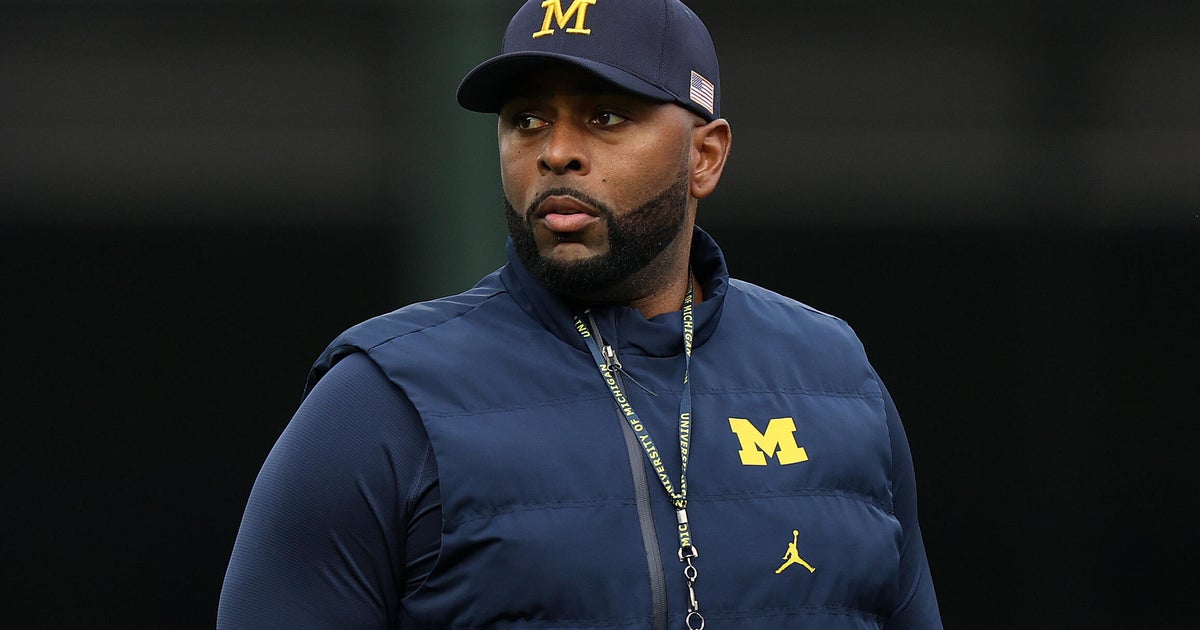Angi: Following Trade Deadline, White Sox Step Toward New Era
By Cee Angi-
(CBS) If you were expecting blockbuster trades, exploding rosters, and all-new faces on the White Sox today, the past few days might have seemed just a little anticlimactic to you.
While it would have been convenient to wake up this morning, the day after the trade deadline, and find that all of the expensive and unproductive players had been neatly boxed and shipped to new teams in favor of younger and cheaper models, the unfortunate reality is that it will take considerably longer than just the month of July to undo years of fundamentally shaky decision-making.
General manager Rick Hahn has promised that it's time to move the roster into a new era, and considering that following Wednesday night's extra-inning loss to the Indians the White Sox' .381 win percentage puts them firmly on pace to lose 100 games this season, most would agree.
The White Sox managed to make three deals before the deadline expired yesterday; they represented just a small spark instead of the fire sale that some expected, but it's a start.
The rebuilding has begun.
In a lot of ways, the contenders have it easier at the trade deadline. They have the luxury of focusing narrowly on winning today, which is certainly easier than predicting the future. They can target their trades to mitigate specific weaknesses. Their biggest internal struggle is how much of the future to leverage for the chance to win now - a concern which is secondary to the immediate goal of winning in any case. Flags, as they say, fly forever. With that rationale you can justify almost any move.
Rebuilders, on the other hand, are in the unenviable position of having to predict the future. The first step for rebuilders is accepting that the chances of short-term success are non-existent; the second is identifying which players on the roster will be the first to go; the third step, a wish-list of players to acquire, is contingent on what other teams are willing to offer for your goods. In that sense, one's trading partners can accelerate or retard the pace of rebuilding.
Hahn and the White Sox haven't done much rebuilding yet—in fact, they kept all of their position players. It's hard to know the specifics of why some deals didn't happen, but in general, the fact that the White Sox were offering fringe talent with at least one or more years left on their contracts, made their talent less attractive to buyers.
The Sox did, however, pull off three trades before the deadline, moving Matt Thornton, Jesse Crain, and Jake Peavy in separate deals.
The Thornton deal happened nearly three weeks ago, in a simple "see a need, fill a need" trade. Thornton was expendable to the White Sox since they have lefties David Purcey and Donnie Veal, neither of whom are great but are suitable for a rebuilding roster; the Boston Red Sox, currently in first in the AL East, were desperate for a left-handed reliever since Andrew Miller's season had ended abruptly with a foot injury a few days earlier.
The White Sox got minor-league outfielder Brandon Jacobs and $750,000 cash in exchange for Thornton. Jacobs fulfills the organization's fetish for toolsy outfielders, a commodity they have in triplicate in the minors. ("Toolsy" is often code for, "Doesn't do much, but looks athletic not doing it.") In the end, the cash may be more valuable than Jacobs, who hit .246/.334/.444 in 83 games in Double-A for the Red Sox this season, but there's still a chance that he develops into more.
The Crain trade was so unusual it required special approval from the Commissioner's Office. The Sox sent Crain and potentially cash to the Tampa Bay Rays, in exchange for a player to be named later or cash, the value of which will be determined by how well Crain pitches this season. While that may seem like a risky thing for the Sox to do since Crain has an injured shoulder, it's a gamble worth making given the variability of relievers. The Sox could get a decent return if Crain' pre-injury numbers are any indication: He struck out 30% of batters he faced and gave up just three runs in 36.2 innings pitched this season.
A three-team trade, which sent Peavy and Tigers' reliever Brayan Villarreal to the Red Sox, shortstop Jose Iglesias to the Tigers, and outfield prospect Avisail Garcia, infielder Cleulius Rondon, and pitchers Francelis Montas and Jeffrey Wendelken to the White Sox, was finalized on Tuesday.
The Sox didn't get any household names in return. Garcia is the closest to major-league ready. He has a strong arm and plays solid defense in the corners, and the hope is that he'll eventually hit for power in the majors. Prior to the trade, Garcia was hitting .374/.410/.537 in 156 plate appearances at Triple-A Toledo this season, but he will have to work on his plate discipline and bat speed if he wants to succeed in the majors. The other three prospects, Rondon, Montas, and Wendelken are the equivalent of lottery tickets. They all have good, if likely limited, upside, but given that they've played a limited number of games in the minors' lowest ranks, it's hard to assess how they will develop over time. In addition to four pieces towards the future, the Peavy trade also cleared out approximately $20 million from the payroll.
It's understandable that some might be frustrated since dumping two relievers and a starter for little return isn't sexy at all, but there will be many changes to come in the next year and the passing of the July 31 non-waiver deadline doesn't mean they are finished.
In fact, there may be more trades to come this season through waiver trades. Adam Dunn, Alex Rios, and Alexi Ramirez will be exposed and possibly claimed. If they are, the White Sox will have the option of negotiating a deal or simply letting them go for free. If they are not claimed, they can be traded to any team.
If they can't make trades during August, then the Sox can try again in the offseason. Paul Konerko, Gavin Floyd, and DeWayne Wise are the only free agents at the end of 2013, and Dunn and Rios will be entering the final year of their contracts. With the free agents and Peavy gone, their current Opening Day payroll for 2014 should be roughly $70 million when you consider arbitration-eligible players, already $48 million less than this season's, giving the organization some breathing room.
The cynical may see the lack of activity at the deadline as a temptation for the White Sox to have just one more chance at keeping the band together, but it's not likely the team is thinking this way. Hahn recognizes that the roster needs an overhaul, and he's taken the first steps in that process, however tentative. Just as watching the current roster is an exercise in patience, waiting for the new one to arrive will be much the same.
Cee Angi is a freelance sportswriter, whose work has appeared at Baseball Prospectus, The Platoon Advantage, The Classical, and is currently one of SB Nation's featured columnists covering Major League Baseball. Follow her on Twitter @CeeAngi and read more of her CBS Chicago blog entries here.







